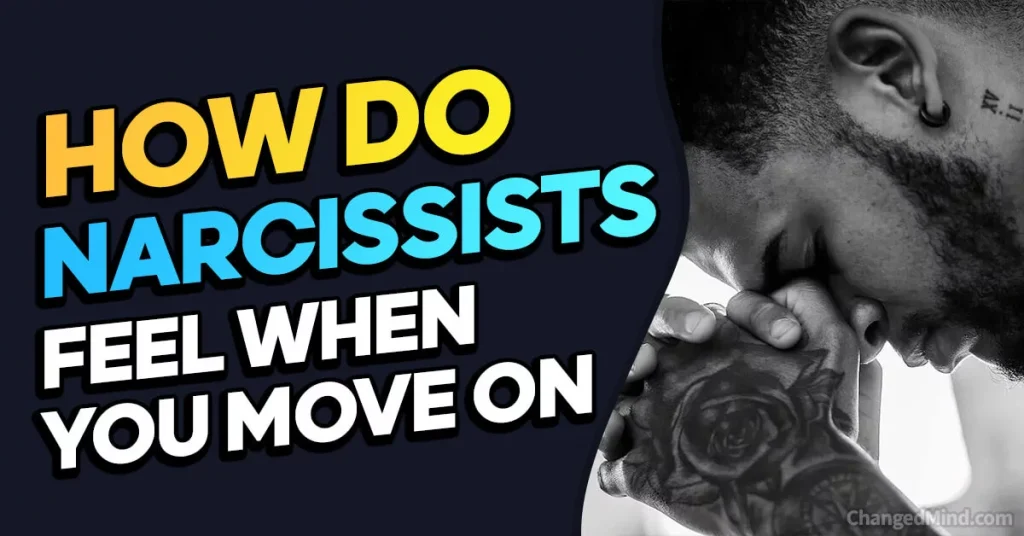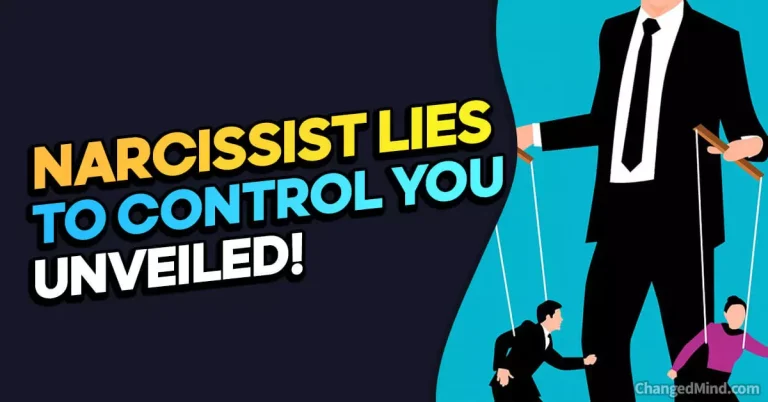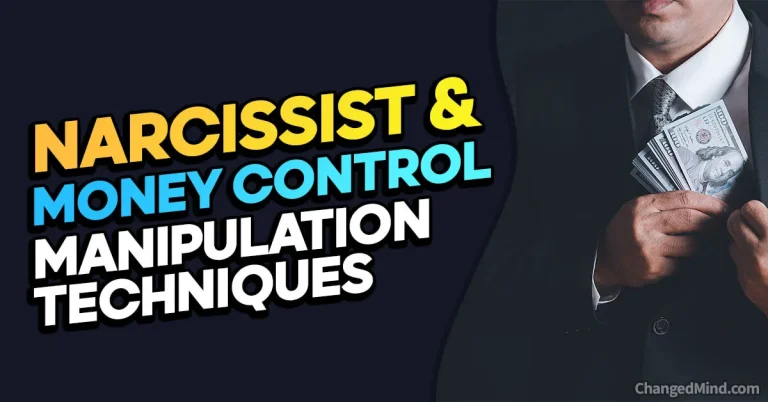You’ve finally mustered the courage to leave that toxic relationship behind. It wasn’t easy, but you did it.
Now, as you embark on your journey of healing and personal growth, you might wonder, “How do narcissists feel when you move on?“
Understanding the emotional makeup of narcissists and their reactions to your progress can provide valuable insights into your own journey of recovery.
What is Narcissistim?
Brief Explanation of Narcissistic Personality Disorder (NPD)
To comprehend how narcissists feel when you move on, it’s essential to grasp the basics of narcissistic personality disorder (NPD). Narcissists exhibit a pervasive pattern of grandiosity, a constant need for admiration, and a lack of empathy. Their inflated sense of self-importance masks deep-seated insecurities and fragile self-esteem.
The Importance of Understanding Narcissists’ Reactions to Moving On
As you begin your healing process, comprehending how narcissists feel when you move on can serve multiple purposes. First, it helps you make sense of their reactions, allowing you to separate yourself emotionally from their behavior.
Second, it reinforces your decision to move on by shedding light on the manipulative tactics they may employ to regain control. Finally, understanding their response empowers you to navigate potential hurdles and maintain your newfound independence.
How Do Narcissists Feel When You Move On? 20 Reactions

- Confused: Narcissists may struggle to comprehend your decision to move on, especially if they believe they hold power over you.
- Threatened: Your independence and growth can pose a threat to the narcissist’s need for control and validation.
- Angered: Narcissists can become enraged when they feel their control over you slipping away.
- Jealous: Your ability to find happiness and fulfillment without them may trigger feelings of envy in the narcissist.
- Betrayed: Narcissists may perceive your decision to move on as a betrayal of their perceived superiority.
- Abandoned: The fear of abandonment is deeply rooted in narcissistic individuals, and your departure can intensify this fear.
- Insignificant: Your success and newfound happiness can make narcissists feel insignificant and overshadowed.
- Powerless: Narcissists may feel a loss of power and influence when you no longer depend on them.
- Rejected: Moving on signifies a rejection of the narcissist, which can be a blow to their fragile self-esteem.
- Inadequate: Your progress and personal growth may highlight the narcissist’s own feelings of inadequacy.
- Frustrated: Narcissists often struggle to understand why they are unable to maintain control over you after you move on.
- Dismissed: Your decision to leave can lead narcissists to dismiss your worth and accomplishments as inconsequential.
- Threatened Ego: Moving on challenges the narcissist’s inflated ego and may puncture their self-image.
- Out of Control: Losing their grip on you can make narcissists feel a sense of chaos and instability.
- Vengeful: Some narcissists may seek revenge or attempt to sabotage your progress after you move on.
- Insecure: Your departure may amplify the narcissist’s underlying insecurities and fear of inadequacy.
- Resentful: Narcissists may harbor resentment toward you for taking control of your own life and happiness.
- Unimportant: When you move on, narcissists may perceive themselves as unimportant or irrelevant in your life.
- Disrupted: The narcissist’s carefully constructed narrative is disrupted when you no longer play the role they expect.
- Emotionally Empty: Moving on can leave narcissists feeling emotionally empty, as their source of validation and supply is removed.
Understanding Narcissistic Emotional Makeup
To grasp the true essence of how narcissists feel when you move on, it’s crucial to delve deeper into their emotional makeup. By understanding their lack of empathy, fragile self-esteem, and grandiose sense of entitlement, you can gain valuable insights into their reactions.
Lack of Empathy and Emotional Connection
Narcissists have an astonishingly limited capacity for empathy and emotional connection. They struggle to comprehend or genuinely care about the emotions and experiences of others, including your own. This lack of empathy allows them to focus solely on their own desires and needs, often disregarding the impact of their actions on others. So, when you move on, don’t expect them to feel the same depth of emotions as you do.
Fragile Self-Esteem and Need for External Validation
Behind their façade of self-assuredness lies an undercurrent of fragile self-esteem. Narcissists rely heavily on external validation to maintain their inflated sense of self-worth. By leaving the toxic relationship, you challenge their source of validation, and this poses a significant threat to their ego.
Their fear of being deemed insignificant or unimportant can fuel intense reactions and manipulative behaviors.
Grandiosity and Entitlement
Narcissists believe they are unique, exceptional beings who deserve constant admiration and special treatment. They expect to be the center of attention, and any deviation from this perceived norm can evoke feelings of envy, resentment, and entitlement.
When you move on and start prioritizing your own happiness and well-being, narcissists may struggle to accept that their control over you is slipping away.
Understanding these emotional aspects of narcissistic individuals allows you to make sense of their reactions and anticipate potential challenges. However, it’s important to remember that every narcissist is unique, and their responses may vary.
Now that we’ve explored their emotional makeup, let’s move on to the initial narcissistic response when you start your journey of moving on.
The Initial Narcissistic Response to Your Moving On

When you first move on from a narcissistic relationship, the narcissist’s reaction can be quite a spectacle. Brace yourself for their initial response, which can range from shock and disbelief to attempts at manipulation and control. Here’s what you might encounter:
Shock and Disbelief
As you gather the strength to leave, the narcissist may find it difficult to accept that their grip on you is loosening. They may express shock and disbelief, unable to fathom that you’re actually moving forward without them.
Don’t be surprised if they try to downplay your decision or dismiss it as a temporary phase. Remember, their disbelief stems from their inability to comprehend your independence and personal growth.
Narcissistic Injury and Ego Bruising
Your departure poses a significant blow to the narcissist’s ego. They thrive on power and control, and your decision to move on undermines their sense of superiority. The narcissistic injury they experience can trigger intense emotional reactions, ranging from anger and resentment to feelings of inadequacy.
Their wounded ego may propel them to retaliate or seek ways to regain control over you.
Attempted Manipulation and Control
Narcissists excel at manipulation and will employ various tactics to reel you back into their web. They might shower you with love and promises of change, attempting to exploit your emotional vulnerability. Beware of their attempts to guilt-trip or gaslight you, as they will go to great lengths to maintain their control over you.
Expert Says
Sara Sloan, LMFT-Associate, MA Counseling
Marriage and Family Therapist, Austin Concierge Therapy

Recognizing their manipulative tactics is key to safeguarding yourself during this vulnerable time.
Ignoring or Downplaying Your Progress
To cope with the reality of your moving on, some narcissists may choose to ignore or downplay your progress. They may minimize your achievements or dismiss your newfound happiness as insignificant. Remember, this is not a reflection of your worth or growth, but rather an attempt to maintain their own sense of superiority.
Don’t let their dismissive behavior undermine your progress or confidence.
Understanding the initial narcissistic response when you move on helps you anticipate their actions and protect yourself from potential manipulation. In the next section, we’ll explore the coping mechanisms and strategies narcissists employ as they try to navigate your newfound independence.
Coping Mechanisms and Strategies of Narcissists
When you move on from a narcissistic relationship, it’s essential to be prepared for the coping mechanisms and strategies that narcissists may employ. These tactics are aimed at regaining control, undermining your progress, and seeking new sources of narcissistic supply.
Hoovering: Attempts to Draw You Back into the Relationship
Narcissists are known for their expertise in “hoovering” – a term coined after the vacuum cleaner brand, as they try to suck you back into their web. They may use various manipulative techniques, such as love bombing, false promises of change, or even feigning illness or crisis, to lure you back. The goal of hoovering is to reinstate their control and dominance over you. Stay strong and remember why you made the decision to move on in the first place.
Character Assassination and Smear Campaigns
When faced with the loss of their primary source of narcissistic supply, narcissists may resort to character assassination and smear campaigns. They attempt to tarnish your reputation by spreading lies, rumors, and half-truths to discredit you. Remember, this behavior stems from their fear of being exposed and losing the validation they derive from others.
Surround yourself with a supportive network of trusted friends and family who know the truth.
Projection and Blame Shifting
To avoid taking responsibility for their actions, narcissists often engage in projection and blame shifting. They deflect their own flaws and shortcomings onto you, making you the scapegoat for their failures. This tactic allows them to maintain their self-perception of superiority and avoid confronting their own insecurities.
Recognize that their accusations are merely projections of their own behavior and do not reflect your true worth.
Seeking New Sources of Narcissistic Supply
When you move on, narcissists may scramble to find new sources of narcissistic supply to fill the void you left behind. They seek attention, admiration, and validation from others to feed their insatiable ego. Be aware that they may target new individuals who are susceptible to their manipulative tactics. By understanding their need for constant validation, you can protect yourself and maintain healthy boundaries.
Recognizing these coping mechanisms and strategies allows you to navigate the aftermath of moving on with greater resilience. In the next section, we’ll explore the significance of your personal growth and healing in the face of narcissistic reactions.
The Significance of Your Personal Growth and Healing
Your decision to move on from a narcissistic relationship carries profound significance not only for your own well-being but also for the narcissist’s sense of control and power. Let’s explore why your personal growth and healing are so impactful.
Threat to the Narcissist’s Control and Power
By moving on, you challenge the narcissist’s control and power over you. Narcissists thrive on manipulating and dominating others, and your newfound independence threatens their ability to maintain that control. As they realize they no longer hold the same influence, their reaction may intensify as they attempt to regain their perceived dominance. Be prepared for their resistance and stay steadfast in your commitment to personal growth.
Healing as a Form of Revenge
Ironically, your healing journey can serve as a form of revenge against the narcissist. By focusing on your own well-being and reclaiming your happiness, you undermine the very foundation of their existence. Narcissists feed off the misery and emotional turmoil they inflict upon others. When you rise above their tactics and refuse to let them define your worth, you take away their power and deliver a powerful blow to their ego.
Rediscovering Self-Worth and Building Resilience
Moving on from a narcissistic relationship allows you to rediscover your self-worth and rebuild your sense of identity. Throughout the toxic relationship, the narcissist may have undermined your confidence and made you doubt your value. Now, as you embark on the journey of healing, you have the opportunity to nurture self-compassion, set healthy boundaries, and cultivate resilience.
Remember, your worth does not depend on the narcissist’s approval or validation.
Your personal growth and healing not only benefit you but also serve as a potent catalyst for change. As you continue to progress, you demonstrate to others, and most importantly to yourself, that you are capable of breaking free from the chains of manipulation and toxicity. Embrace your journey and celebrate each step forward.
The Evolution of Narcissistic Feelings
As time passes and they come to terms with your decision to move on, narcissists may experience an evolution of emotions. Let’s explore the different stages they may go through as they navigate the aftermath of your departure.
Initial Rage and Resentment
At first, the narcissist’s reaction is often characterized by intense rage and resentment. Your independence threatens their grandiose sense of self and their need for control. They may feel a deep-seated anger towards you for daring to escape their grasp.
During this stage, it’s important to prioritize your safety and well-being, as their initial rage can lead to potentially harmful behaviors. Maintain strict no-contact boundaries and seek support from trusted individuals who can help you through this challenging period.
Gradual Detachment and Indifference
Over time, as the narcissist realizes that their attempts to regain control are futile, they may begin to detach emotionally. They may display an increasing sense of indifference towards your progress and newfound happiness. While this detachment can provide a sense of relief from their manipulative tactics, it’s important to remain vigilant.
Narcissists are known for their ability to switch between charm and cruelty, and their apparent indifference may be a temporary facade. Stay focused on your healing and continue to maintain healthy boundaries.
Potential for Future Hoovering or Retaliation
Although the narcissist may appear detached or indifferent, it’s essential to recognize that their desire for control and validation may resurface in the future. They may attempt to hoover you back into the relationship, using various manipulative tactics to lure you in. Alternatively, they may seek revenge through smear campaigns or character assassination.
Understanding their potential for future hoovering or retaliation allows you to remain prepared and stay strong in your resolve to move forward.
Remember, every narcissist is different, and their evolution of feelings may vary. While some narcissists may experience a complete detachment and move on with their lives, others may persist in their attempts to regain control.
Stay committed to your own personal growth and healing, and surround yourself with a support network that understands the dynamics of narcissistic relationships.
Strategies for Moving On Successfully
Moving on from a narcissistic relationship can be challenging, but with the right strategies in place, you can navigate this journey successfully. Here are some practical tips to help you move forward and reclaim your life.
No Contact and Establishing Boundaries
Implementing a strict “no contact” rule is crucial when dealing with a narcissist. This means cutting off all communication and blocking them from your life, including social media. Establish clear boundaries and stick to them, even if they attempt to contact you. By maintaining distance, you protect yourself from further manipulation and allow space for healing.
Building a Support Network
Surrounding yourself with a supportive network of friends, family, or a therapist is essential during this time. Seek out individuals who understand narcissistic abuse and can provide empathy, guidance, and validation. Sharing your experiences with others who have gone through similar situations can be tremendously healing and validating.
Focus on Self-Care and Personal Growth
Make self-care a priority as you heal and move forward. Take time for activities that bring you joy, practice self-compassion, and prioritize your physical and emotional well-being. Engage in activities that promote personal growth, such as therapy, mindfulness practices, or pursuing new hobbies. By investing in yourself, you reinforce your self-worth and build resilience.
Seeking Professional Help, if Needed
If you find that the effects of the narcissistic relationship are overwhelming or interfering with your daily life, consider seeking professional help. A therapist experienced in dealing with narcissistic abuse can provide guidance and support tailored to your specific needs. They can assist you in navigating the healing process and provide valuable tools to empower you on your journey.
Remember, healing from a narcissistic relationship takes time and patience. Be gentle with yourself and celebrate each small step forward. Your ability to move on successfully is a testament to your strength and resilience.
In conclusion, understanding how narcissists feel when you move on sheds light on their reactions and helps you prepare for the challenges that may arise. By implementing strategies such as no contact, building a support network, focusing on self-care, and seeking professional help if needed, you can navigate this journey with greater ease and emerge stronger than ever before.
Remember, you have the power to reclaim your life and thrive beyond the grasp of narcissistic individuals.
Congratulations on taking the first steps toward your journey of healing and empowerment!
Conclusion
In conclusion, understanding how narcissists feel when you move on provides valuable insights into their reactions and behaviors. By recognizing their fear of abandonment, need for control, and struggle with their own self-worth, you gain a deeper understanding of the dynamics at play in toxic relationships. Armed with this knowledge, you can better navigate the challenges of moving on and prioritize your own well-being.
Throughout this article, we explored the range of emotions narcissists may experience when you move on. From initial shock and disbelief to attempts at manipulation and control, their reactions are driven by their fragile ego and the threat to their perceived power. However, as you continue to progress and heal, their emotional investment in you gradually diminishes, and they may resort to detachment and indifference.
It’s important to remember that each narcissistic individual is unique, and their responses may vary. Some may attempt to hoover you back into the relationship, while others might engage in character assassination or smear campaigns. Projection and blame shifting are common tactics employed by narcissists to avoid taking responsibility for their actions. They may also seek new sources of narcissistic supply to fill the void you left behind.
But fear not! By understanding these strategies and their underlying motivations, you can develop effective coping mechanisms and strategies for moving on successfully. Here’s a quick recap:
- No Contact and Establishing Boundaries: Implementing a strict “no contact” rule and setting clear boundaries protects you from further manipulation and allows space for healing.
- Building a Support Network: Surround yourself with a supportive network of friends, family, or a therapist who understands narcissistic abuse and can provide empathy and validation.
- Focus on Self-Care and Personal Growth: Prioritize self-care, engage in activities that bring you joy, and invest in personal growth. Therapy, mindfulness practices, and new hobbies can aid in the healing process and reinforce your self-worth.
- Seeking Professional Help, if Needed: If the effects of the narcissistic relationship become overwhelming, don’t hesitate to seek professional help. A therapist experienced in dealing with narcissistic abuse can provide tailored guidance and support.
By following these strategies and staying committed to your healing journey, you can break free from the toxic grip of narcissistic individuals and regain control over your life. You have the power to create a future filled with self-love, personal growth, and healthy relationships.
Remember, moving on from a narcissistic relationship takes time, patience, and resilience. Celebrate your progress, no matter how small, and be gentle with yourself along the way. Trust in your ability to heal and thrive beyond the toxic influence of the narcissist.
You deserve happiness, love, and a life free from the constraints of narcissistic abuse. Embrace your newfound freedom and prioritize your personal well-being. You are stronger than you know, and the journey ahead holds the promise of a brighter future.
Wishing you strength, healing, and a life filled with love and empowerment.
Remember, you are not alone in this journey. Reach out for support, prioritize self-care, and never underestimate the power of your own resilience.
You deserve a life filled with happiness, love, and freedom. Embrace the journey ahead and reclaim your power. You’ve got this!
FAQ
How do narcissists typically react when you move on?
Narcissists may initially feel shocked and try to regain control through manipulation. As you continue to progress, their emotional investment diminishes, leading to detachment and potentially seeking new sources of narcissistic supply.
Do narcissists feel a sense of loss when you move on?
Yes, narcissists can experience a sense of loss, primarily related to losing control and power over you. However, their response may vary, and some may resort to indifference or even retaliation.
Can narcissists ever truly let go when you move on?
Narcissists struggle with letting go due to their need for control and fear of being replaced. They may attempt to maintain a sense of control and undermine your progress, making it challenging for them to move on.
How do narcissists cope with the loss of their control over you?
Narcissists cope with the loss of control by seeking alternative sources of narcissistic supply. They may try to hoover you back into the relationship or engage in character assassination to regain a sense of power.
Can moving on successfully provoke a narcissistic reaction?
Yes, moving on can provoke various reactions from narcissists, such as envy, rage, or attempts to devalue your achievements. They may feel threatened by your independence and self-confidence, leading to retaliatory behaviors.
Disclaimer
This information is for educational purposes only and is not intended to be a substitute for clinical care. Please consult a health care provider for guidance specific to your case.






